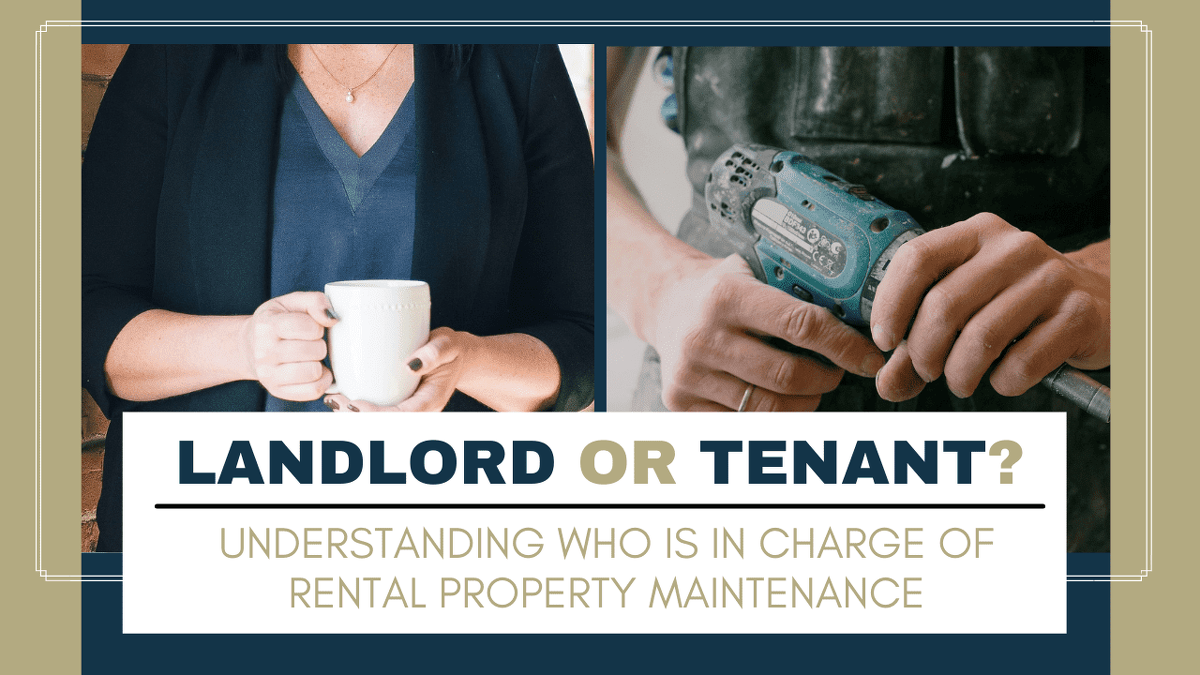Unlocking the Code: Navigating Landlord and Tenant Responsibilities in New Zealand
Date: 19 Dec 2023
Homeownership is a journey that involves not only the joy of creating cherished memories but also the responsibility of maintaining a safe and habitable space. In the realm of property management in New Zealand, there exists a complex tapestry of legislation that outlines the rights and responsibilities of both landlords and tenants. As a handyman business committed to ensuring homes are well-maintained, we delve into the legal landscape to provide clarity on the expectations surrounding and repairs.
Residential Tenancies Act 1986: The Foundation of Landlord Responsibilities
At the core of the landlord-tenant relationship lies the Residential Tenancies Act 1986, a foundational piece of legislation that sets the tone for property management in New Zealand. According to this act, landlords are obligated to provide and maintain rental properties in a reasonable state of repair. The definition of 'reasonable' varies based on factors such as the age and character of the property.
The Act goes on to specify that landlords must ensure the safety of the property's plumbing, electrical wiring, and overall structure. Safety hardware, including locks and fastenings, must be maintained in working order, reinforcing the commitment to tenant safety and well-being.
Regular Inspections and Timely Repairs: Meeting Legal Standards
Landlords, in compliance with the Residential Tenancies Act, are tasked with conducting regular inspections to assess the condition of their rental properties. These inspections serve a dual purpose, allowing landlords to evaluate both the overall state of the property and the tenant's adherence to cleanliness standards.
Crucially, any necessary repairs identified during these inspections must be addressed promptly. Having a dependable property manager can streamline this process, ensuring that inspections are thorough, repairs are swift, and reliable contractors are engaged.
Urgent Repairs: Addressing Immediate Concerns
Certain issues demand immediate attention to safeguard the health and safety of tenants. According to New Zealand's regulations, urgent problems include but are not limited to blocked drains, gas leaks, water leaks, lack of hot water or power, and electrical faults. In such cases, tenants have the right to undertake repair work themselves, seeking reimbursement from the landlord.
Responsibility for Damage: Legal Recourse
The Residential Tenancies Act also outlines the responsibilities when it comes to property damage. If a tenant intentionally damages the property, the landlord can request the tenant to repair the damage or cover the cost of replacement or repair. In cases of tenant carelessness, the tenant is liable for damages up to four weeks' rent or the landlord's insurance excess, whichever is lower. Failure to comply may lead to the landlord seeking legal intervention through the Tenancy Tribunal.
Healthy Homes Guarantee Act: Elevating Living Standards
Introduced to enhance the quality of rental homes, the Healthy Homes Guarantee Act mandates landlords to meet specific standards related to heating, insulation, ventilation, moisture ingress, drainage, and draught-stopping. Landlords are responsible for conducting necessary maintenance or repairs to bring the property up to these standards. All private residential properties must comply within 90 days of any new or renewed tenancy from July 1, 2021, with a universal compliance deadline of July 2024.
Asbestos-Related Risks: A Landlord's Duty
In the realm of property maintenance, landlords hold the responsibility for managing asbestos-related risks when any work is being undertaken on their property. This obligation is designed to protect the health and safety of tenants, neighbours, contractors, and all those who may be affected by asbestos exposure.
Garden Maintenance and the Tenancy Agreement
Clarity is key when it comes to garden maintenance. According to the Residential Tenancies Act, tenants are responsible for keeping the property and its garden reasonably tidy and clean until the end of their tenancy. The specifics of these responsibilities should ideally be outlined in the tenancy agreement to avoid disputes. Arranging a lawn and garden maintenance contractor like the team at Lawn Rite to attend the property on a fortnightly basis is a hassle free way to ensure the grounds and lawns are maintained at all times and your not left with a big job to tackle when the tenants move out.
Small Details Matter: Light Bulb Replacements and Communication
While not explicitly covered by the Residential Tenancies Act, certain nuances, such as light bulb replacements, highlight the importance of clear communication between landlords and tenants. In cases where non-standard bulbs are required, landlords may agree to cover the cost or handle the replacements. Establishing such agreements at the start of a tenancy ensures a harmonious living arrangement.
In conclusion, the legal framework surrounding property maintenance and repairs in New Zealand is intricate but essential for fostering a secure and comfortable living environment. As a trusted handyman service, we recognize the significance of compliance with these regulations and are dedicated to assisting landlords and tenants alike in meeting their respective responsibilities. Whether it's urgent repairs, routine maintenance, or compliance with evolving legislation, our team is here to ensure that every home receives the care and attention it deserves. If you need any help or advice around rental property maintenance feel free to contact your local franchisee from The Handyman Group for some free advice and recommendations.
Back...
